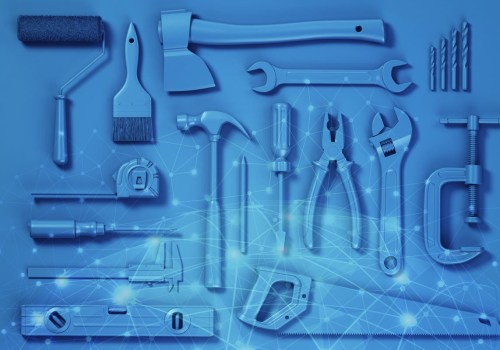Doing your own auto repairs can be a great way to save money and time. But before you get started, you need to make sure you have the right tools for the job. From basic hand tools to specialized mechanic's tools, there are many different items you may need when it comes to DIY auto repairs. In this article, we'll take a look at what tools you need for DIY auto repairs, so you can make sure you have everything you need to get the job done right. The type of tools you need will depend on the type of repair you are doing.
However, there are some essential tools you will need regardless of the repair. These include: basic hand tools such as pliers, screwdrivers, wrenches, and sockets; a digital multimeter to measure voltage and other electrical components; a jack stand and jack to safely lift your car; a torque wrench to ensure proper tightening of bolts; and a fluid extractor for draining and filling fluids. In addition, you may need specialty tools depending on the repair. For example, if you are doing brake work, you may need a brake bleeder or an impact wrench.
It is important to research the specific type of repair you are doing in order to determine what tools you will need. You will also need supplies such as lubricants, cleaners, sealants, adhesives, and other chemicals. You may also need replacement parts such as brakes, filters, and hoses. Again, it is important to research the particular repair in order to determine what supplies and parts you will need. In addition to the tools and supplies mentioned above, there are other items that are helpful when doing DIY auto repairs. These include safety equipment such as gloves and goggles; protective clothing such as coveralls or overalls; vehicle stands or ramps; and a well-lit workspace with a comfortable chair. ; protective clothing such as coveralls or overalls; vehicle stands or ramps; and a well-lit workspace with a comfortable chair.
Having these items on hand will make your repair job easier and safer.
Essential Tools for DIY Auto Repairs
When tackling DIY auto repairs, it's important to have the right tools on hand. The essential tools you need for DIY auto repairs include basic hand tools, a digital multimeter, a jack stand and jack, a torque wrench, and a fluid extractor. Basic hand tools such as wrenches, screwdrivers, and pliers are essential for most jobs like replacing brakes or changing belts. A digital multimeter is an invaluable tool for testing electrical circuits.It is used to test voltage, current, and resistance. A jack stand and jack are necessary for lifting the car safely. A torque wrench is used to ensure that bolts and other fasteners are tightened to the correct torque specification. A fluid extractor is used to safely remove and transfer fluids from the car such as coolant or oil.
Supplies Needed for DIY Auto Repairs
When it comes to DIY auto repairs, having the right supplies is key.Without the necessary items, you won't be able to get the job done properly. It's important to make sure you have all of the necessary supplies before starting any type of repair job. This section covers the supplies needed for DIY auto repairs including lubricants, cleaners, sealants, adhesives, replacement parts, safety equipment, protective clothing, vehicle stands or ramps, and a well-lit workspace. Lubricants are essential for a variety of auto repairs. They help to prevent wear and tear on parts and keep them running smoothly.
Cleaners are important for removing dirt and debris from parts before they are repaired. Sealants help to keep moisture out of parts and protect them from corrosion. Adhesives are used to secure parts together and prevent them from coming loose. Replacement parts are needed when repairing or replacing broken or worn out components. It is important to make sure that you have the exact right parts needed for the repair job.
Safety equipment is also essential when working on a vehicle. This includes safety glasses, gloves, and other protective gear. Protective clothing is also important when undertaking DIY auto repairs. Make sure that you wear long sleeves, long pants, and closed-toe shoes to protect yourself from any potential hazards. Vehicle stands or ramps can also be used to help with more complex repairs or to make it easier to access certain components. Lastly, having a well-lit workspace is essential for any DIY auto repair job.
This will ensure that you can clearly see what you're doing and that you have enough space to work comfortably. When it comes to DIY auto repairs, having the right tools and supplies can make all the difference. Having a full set of essential tools and necessary supplies on hand allows you to tackle almost any repair job. Doing your research ahead of time can help ensure that you have all the right tools and supplies for the job. DIY auto repairs are a great way to save money and gain knowledge about your car, so make sure you're properly equipped before getting started!.







